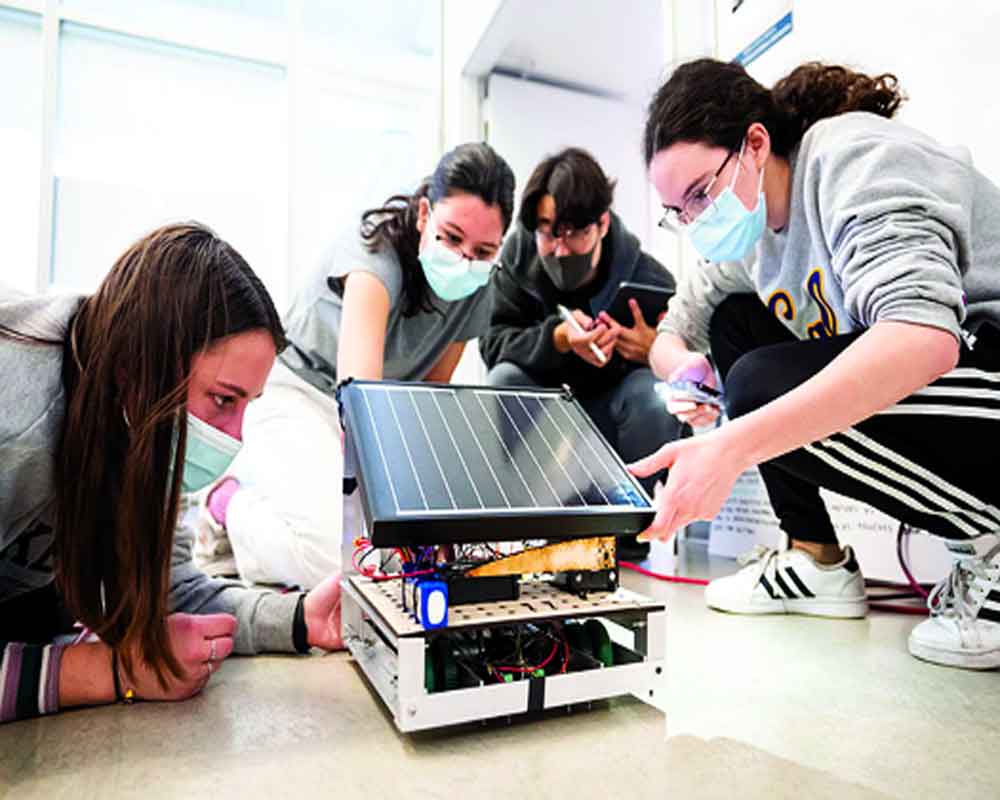Embracing experiential learning may well be the key to preparing students for the challenges and opportunities of the changing world
In an ever-evolving world, the ability to acquire and adapt skills is crucial for success. While traditional learning methods hold value, experiential learning emerges as a powerful tool for skill development. By immersing individuals in real-world scenarios, it fosters deeper understanding, boosts knowledge retention, and cultivates essential soft skills.
Experiential Learning?
Experiential learning, rooted in the work of David Kolb, emphasises learning through active engagement and reflection on experiences. It's a hands-on approach, contrasting with passive knowledge absorption. Individuals "learn by doing," applying theoretical concepts to practical situations, whether through simulations, projects, internships, or real-world challenges.
Key Components:
Engagement: Experiential learning places a strong emphasis on engagement. Students are actively involved in the learning process, whether through experiments, projects, field trips, or interactive activities. This engagement helps capture their attention and encourages a sense of curiosity.
Reflection: A crucial aspect of experiential learning is the reflective process. After engaging in an activity, students are prompted to reflect on their experiences, analyse the outcomes, and connect the practical knowledge gained to theoretical concepts. This reflective phase enhances their critical thinking skills.
Application: Experiential learning encourages the immediate application of knowledge. By directly applying what they have learned in real-world scenarios, students can see the practical relevance of their education, leading to a deeper understanding and retention of information.
Experiential Learning in Skill Development:
Critical Thinking and Problem-Solving: Experiential learning challenges students to think critically and solve problems on their own. Through hands-on experiences, they learn to analyse situations, make decisions, and adapt to changing circumstances - essential skills for success in both academic and real-world settings.
Teamwork and Communication: Collaborative projects and group activities inherent in experiential learning help students develop strong teamwork and communication skills. They learn to express their ideas, listen to others, and work cohesively towards common goals, mirroring the dynamics of the professional world.
Creativity and Innovation: Hands-on experiences stimulate creativity and innovation by encouraging students to think outside the box. When faced with real-world challenges, students are prompted to generate unique solutions, fostering an entrepreneurial mindset and adaptability.
Emotional Intelligence: Experiential learning enhances emotional intelligence by exposing students to diverse situations. They learn to understand and manage their emotions, as well as empathise with others, preparing them for a more emotionally intelligent and socially aware future.
Long-term Retention: The active involvement and application of knowledge in experiential learning contribute to better retention. Students are more likely to remember and understand concepts that they have personally experienced, as opposed to those learned through passive methods.
In the 21st century, where adaptability and a diverse skill set are crucial for success, experiential learning emerges as a powerful tool for skill development in schools. By integrating this pedagogical approach, educators can foster not only a deep understanding of academic concepts but also the critical skills needed for future success. As schools continue to evolve, embracing experiential learning may well be the key to preparing students for the challenges and opportunities of the rapidly changing world.
(The writer is an educaor and expert on education policies; views are personal)


























